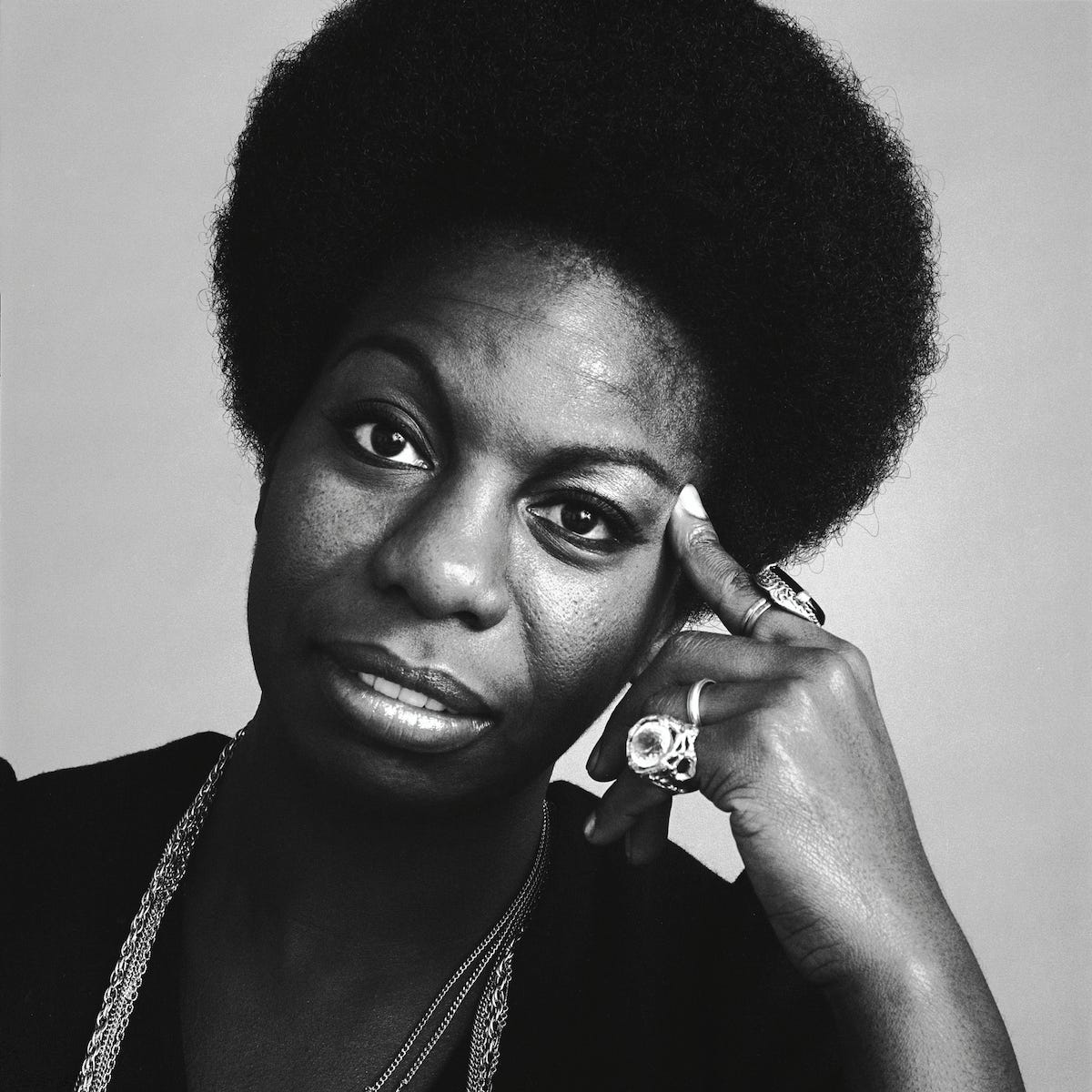K Recommends: “22nd Century” by Nina Simone

Where did this song come from? It’s an otherworldly, transcendent forecast of a bleak future. If you only know Nina Simone’s voice from her jazz standards, peek into this track for a hint of her musical capabilities beyond her signature blues.
“22nd Century” can be overwhelming. From a dreadful vantage point, Simone recounts how people are barely breathing, bodies are in distress. Given that the song was released in 1971, and songs around the 1950s-70s often looked towards the year 2000 when picturing decades ahead, I am forever curious as to what led to this perception of life several centuries away.
The music ripples and Simone’s voice is strongest even when it succumbs to a shaken vibrato. Nina Simone was a consummate storyteller whose forte was oriented in jazz and blues. That the song emanates sorrow and fear is not unusual fare in her repertoire.
She describes a timeline from when a plague struck and from there all life was a suffocating struggle. She fondly nods to 1972 and mentions people being free but just a few years later, all is devastated:
“Your heart is a plastic thing which can be bought.”
“Young men die in spring.”
I am not sure anyone could ever do an interpretation of the lyrics that would match the intentions of the artist herself. The richly-detailed and heavy content requires several reviews and re-listening to “22nd Century” in order to grasp the complete narration.
The tropical sound of steel drums is quite a juxtaposition against the grim settings of the future presented to the listener. Perhaps these sounds echo remembrances of the past. These sounds could be the last vestiges of a civilization prior to the end times of the late 20th century.
This is a truly complex and fascinating song worth the nearly nine minute length and it sings like profound, poetic fiction.
https://www.youtube.com/watch?v=MDg9Leplmyg(Song recommendation by K Weber)